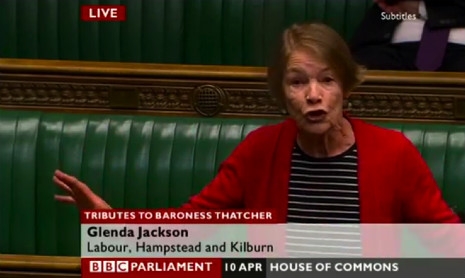
When Test Dept were at the end of their first incarnation, performing at the Island Open Air Festival in Berlin, during August of 1997, the group had progressed from their hard industrial sound (hammers hitting metal) to a more experimental electronica much related (a second cousin twice removed, perhaps) to rave culture.
Some artists and musicians need pricks to kick against in order to produce great art—otherwise they would all end up being as anodyne as Justin Bieber or as deluded as Kanye West. Test Dept had the extreme machinations of the British Conservative government to kick against when they formed in south London’s docklands in 1981. Test Dept described themselves as “an urgent reaction to the materialistic drift and reactionary conservatism of the prevailing musical and political culture.” They were the antithesis of the moronic inferno of commercial music and the perniciousness of right-wing politics. Their motto was:
EXTREME CONDITIONS DEMAND EXTREME RESPONSES.
Test Dept were in opposition to the extreme conditions being created by the ruling Conservative party under the prime ministership of Margaret Thatcher. Mrs. T. had been elected in May 1979 on a campaign that claimed the previous Labor government had created high unemployment. By 1981 the irony fairy had been working overtime and Thatcher’s policies doubled the number of unemployed. It eventually reached a massive high of over 3 million people by the mid-1980s.
Across the country, industries and businesses were closed. Essential social services were devastated by the Tory’s cuts, which will sound familiar to younger generations. Thatcher operated on the belief that the previous Labor government had made the British far too dependent on state hand-outs (welfare) and this was why she hacked away at the benefits system like a drunk gardener uprooting roses to kill the weeds.
Test Dept were a response to the obscenity of a new political order and the decay and poverty left in its wake. TD scavenged for the tools to make their industrial sonic attack—discarded sheet metal, hammers, oil drums. They were aligned to political activism—seeking like-minded collaborators—filmmakers, sculptors, dancers and politically active groups—to produce site-specific works to fight back and bring change. In 1984, at the height of the miners’s strike—when Thatcher closed the mines and starved the miners out of work—TD collaborated with miners and their families to draw attention to their plight and raise money for their funds.
Anyone who saw TD during this decade felt emboldened and empowered to fight back against the Tories and bring about a fairer more equal society. They are very much needed again now.
As if responding to some psychic Bat signal, Test Dept regrouped for the release of a book to commemorate their involvement with the miners’ strike. Next month they’ll premier their soundtrack to the recently rediscovered and restored Soviet silent film masterpiece An Unprecedented Campaign by Mikhail Kaufman. Test Dept will appear at the film’s premiere in Newcastle, details here.
Previously on Dangerous Minds
EXTREME CONDITIONS DEMAND EXTREME RESPONSES: Test Dept’s industrial strength Socialism






